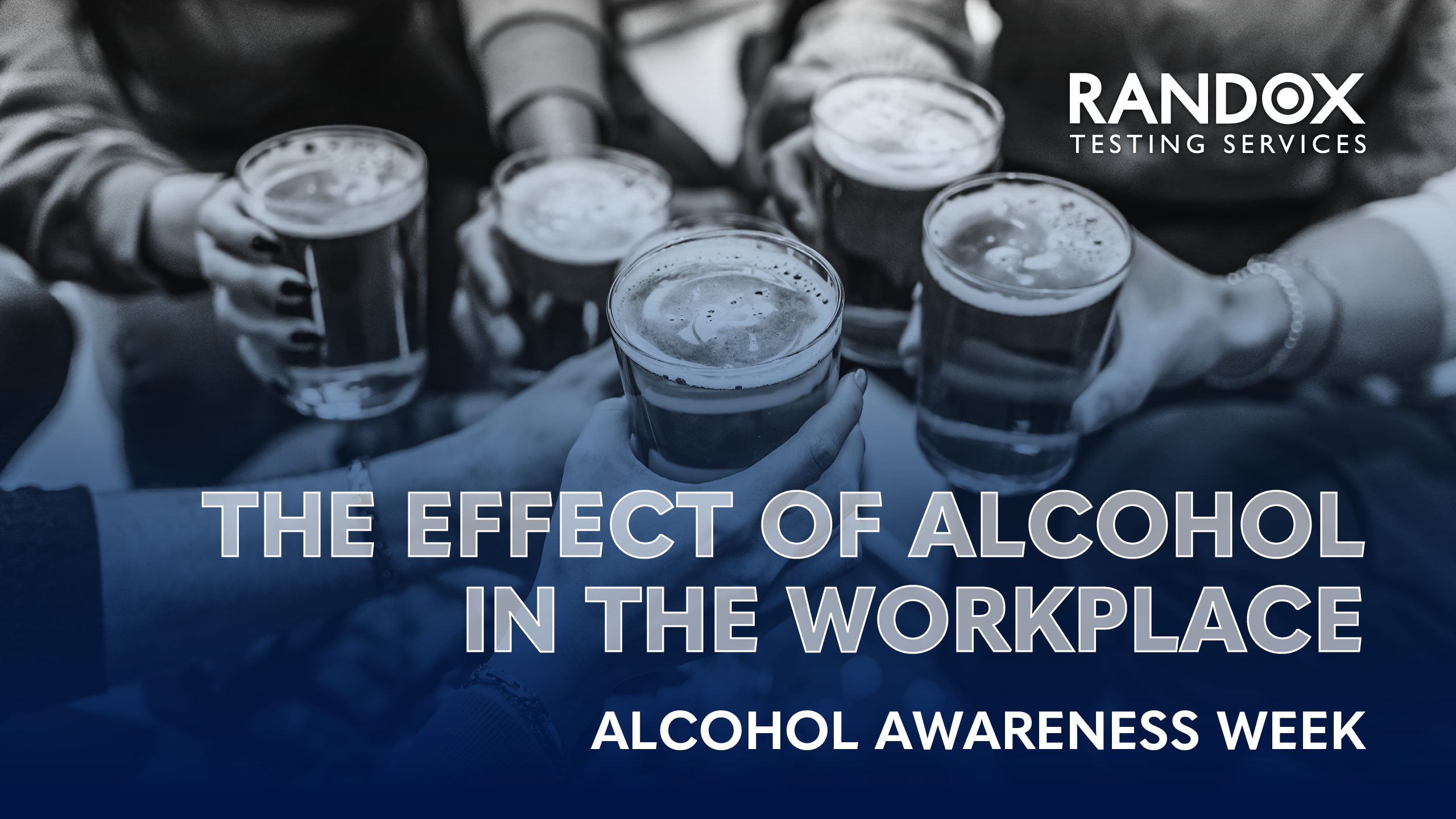Is Alcohol Harming Your Workplace More Than You Think?

Is Alcohol Harming your Workplace more than you think?
In the UK, alcohol is woven into our social fabric. It’s how we celebrate, unwind, bond with colleagues, and close a deal. But when drinking habits cross into the professional world, whether directly or indirectly then the consequences can ripple far beyond the individual.
This Alcohol Awareness Week let’s take a closer look at how alcohol affects our working lives, and more importantly, how we can foster healthier, more supportive workplaces for everyone.
The Hidden Cost of Hangovers: The Productivity Problem
You might not see it in the weekly reports or hear it in the team meetings but alcohol is quietly chipping away at productivity. And the effects often start long before the first drink is poured during office hours (if ever).
Even when alcohol is consumed “after work,” the hangovers, fatigue, and brain fog often show up on company time.
According to the Institute of Alcohol Studies:
- 42% of employees admit to having turned up to work with a hangover [1].
- On those days, they rated themselves as 39% less effective than usual [1].
That drop in performance adds up fast, missed deadlines, poor-quality work, and increased error rates are just the tip of the iceberg.
Meanwhile, the Association of Directors of Public Health estimates that alcohol-related sickness leads to a staggering 17 million lost working days every year [2].
The estimated cost of workplace hangovers to the UK economy? Between £1.2 billion and £1.4 billion per year [1].
Safety at Stake: When Alcohol Becomes a Risk Factor
The impact becomes even more serious in safety-critical industries like construction, transport, manufacturing and warehousing, where a split-second decision can mean the difference between safety and harm.
The Centers for Disease Control and Prevention (CDC) reports that alcohol contributes to 18% of all workplace injuries [3].
Even more striking: the British Safety Council reports that 50% of all workplace fatalities involve alcohol [4].
And it’s not always a matter of someone drinking on the job, often it’s the residual effects from the night before that can impair coordination, reaction time, and judgment.

Stress, Drinking, and the Mental Health Connection
It’s no secret that work can be stressful. For many, alcohol becomes the go-to way to “take the edge off.” But over time, that coping mechanism can become a problem especially if it starts to affect emotional wellbeing, concentration, and mood at work.
Those who regularly drink to deal with stress may find themselves trapped in a cycle of:
- Difficulty focusing
- Low motivation
- Heightened anxiety or depression
Without support, this cycle can be hard to break, and it doesn’t just affect the individual, it affects the whole team.

Challenging the Drinking Culture at Work
From Friday drinks to pub lunches and client dinners, alcohol often plays a central role in workplace socialising. But what happens when that culture unintentionally excludes people?
Employees may feel uncomfortable or isolated if they:
- Are trying to cut down or stop drinking
- Don’t drink for health, personal, or religious reasons
- Are in recovery or living with alcohol dependence
- Simply don’t enjoy drinking
When alcohol becomes the “default,” those who opt out can feel pressured to justify their choice or left out altogether.
An inclusive culture is one that values connection, not conformity.
What can Employers Do?
This isn’t about banning booze or policing behaviour. It’s about creating environments where people can be at their best—physically, mentally, and professionally.
Here are practical ways employers can support healthier workplaces:
- Have a Clear Alcohol Policy
Outline expectations and support mechanisms. This builds trust and clarity.
- Promote a Culture of Inclusion
Create social spaces and events where alcohol isn’t the main attraction.
- Train Managers to Spot the Signs
Empower line managers to notice and sensitively address changes in performance or behaviour that might be alcohol-related.
- Offer Support Without Judgement
Provide access to confidential services, mental health support, and resources. Encourage open conversations without stigma.
Final Thought: It’s a Collective Responsibility
Alcohol is a personal choice but its effects at work are shared. Whether it’s through reduced productivity, safety risks, or social exclusion, the impact of alcohol in the workplace is too important to ignore.
This Alcohol Awareness Week, ask yourself:
- Are we creating a culture where everyone can feel included whether they drink or not?
- Are we equipping our teams with healthier ways to cope with stress and connect with one another?
- Are we willing to start the conversation that might make a real difference?
By shifting how we talk about alcohol at work, we can reduce stigma, improve wellbeing, and build workplaces where people feel safe, supported, and empowered to thrive.
Need Guidance on Alcohol in the Workplace?
We’re here to help you take a proactive, compassionate approach to workplace wellbeing and safety.
Contact Randox Testing Services:
Email: testingservices@randox.com
Phone: +44 (0) 28 9445 1011
LinkedIn: Randox Testing Services
Website: Randox Drug & Alcohol Testing Services
References
- Institute of Alcohol Studies (2020). Alcohol in the workplace BRIEFING ALCOHOL KNOWLEDGE CENTRE. [online] Available at: https://www.ias.org.uk/wp-content/uploads/2020/12/Alcohol-in-the-workplace.pdf.
- Johnston, J. (2025). Counting the cost of alcohol in the workplace – ADPH. [online] ADPH. Available at: https://www.adph.org.uk/2025/07/counting-the-cost-of-alcohol-in-the-workplace/
- National Safety Council (n.d.). Impacts of Alcohol on Worker Health, Safety, Risk-taking and Workplace Costs. [online] Available at: https://www.nsc.org/getmedia/db92ae89-cae0-4125-8169-34ac1e8fa8a7/methodology-impact-alcohol.pdf.
- British Safety Council (2024). Alcohol at work: it’s time to rethink the drink | British Safety Council. [online] British Safety Council. Available at: https://www.britsafe.org/safety-management/2024/alcohol-at-work-it-s-time-to-rethink-the-drink.